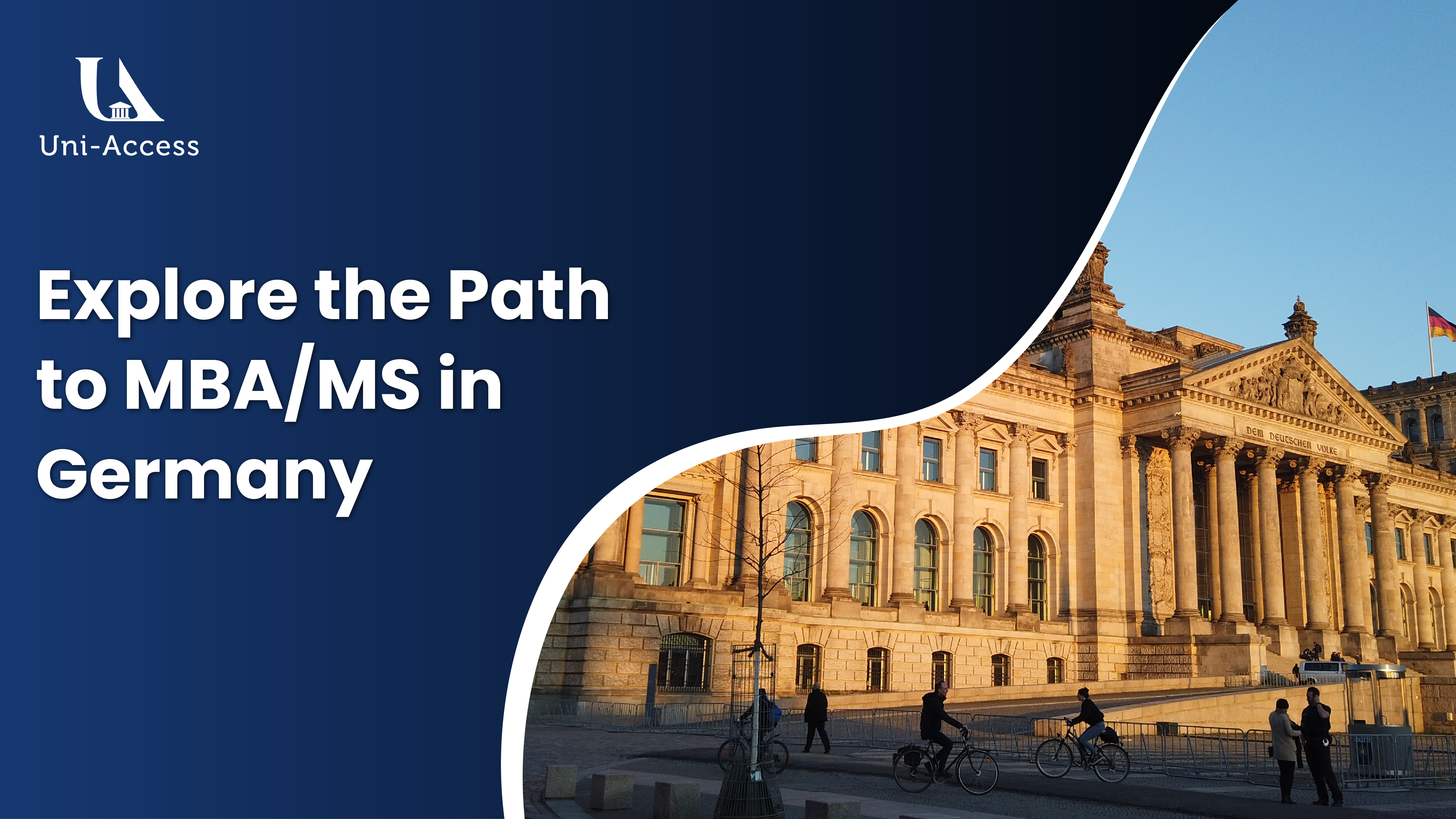Beginning the journey of higher education is a pivotal moment in one's academic and professional life. In addition to offering a distinctive educational experience, many prospective students think that studying abroad for a Master of Science (MS) or Master of Business Administration (MBA) degree allows them to explore a foreign culture and get international exposure. International students pursuing advanced degrees find Germany to be a desirable destination due to its reputation as a center of academic excellence, technical innovation, and economic stability. The country has a strong higher education system that is accessible to students from a variety of linguistic backgrounds and is marked by cutting-edge facilities, renowned faculty, and a broad range of academic programs taught in English. In addition, networking, internships, and post-graduation employment are abundant due to Germany's robust industrial base and advantageous location within Europe. We will examine the challenges of earning an MBA or MS in Germany in this blog, gathering insights from study abroad consultant for Germany as we examine the program's composition, requirements, and admissions processes.
Structure of MBA/MS Programs
MS and MBA programs in Germany are usually designed to give students a thorough understanding of the subject matter by combining classroom instruction, hands-on training, and research assignments. The following are typical components of many postgraduate programs, while the specifics may differ according to the school and course of study:
- Core Courses: These introductory classes give students a strong theoretical foundation on which to develop their skills by covering key subjects related to the field of study.
- Elective Courses: By selecting optional courses from a wide range of specialist areas, students have the freedom to customize their curriculum per their interests and career aspirations.
- Internships/Practical Experience: To allow students to obtain practical experience and apply academic concepts in real-world contexts, many programs include internships, industry projects, or chances for practical training.
- Thesis or Capstone Project: Completing a thesis or capstone project, where students work with faculty mentors to perform original research or address a major business challenge, is typically required as the program's capstone project.
- Seminars and Workshops: To foster intellectual discourse and professional development, universities frequently organize seminars, workshops, and guest lectures featuring renowned scholars, industry experts, and business leaders.
Requirements for Admission
Admission requirements for MBA/MS programs in Germany may vary depending on the institution, program, and academic discipline. However, several common prerequisites and criteria are typically considered during the application process:
- Academic Qualifications: Bachelor's degree or its equivalent from an accredited college or university is required of applicants. The degree must be pertinent to the field of study of choice, and candidates must have a solid academic record.
- Standardized Tests: Applications for some programs might need to include results from standardized assessments like the Graduate Record Examination (GRE) or the Graduate Management Admission Test (GMAT). Admissions choices may be based on the results of these examinations, which evaluate candidates' readiness for advanced coursework.
- Work Experience: While not always mandatory, many MBA programs prefer candidates with prior work experience, especially for executive or part-time programs. Relevant professional experience can demonstrate applicants' readiness for the rigors of graduate-level study and contribute to class discussions and group projects.
- Language Proficiency: Language Proficiency: Since many programs need language instruction, non-native English speakers are typically obliged to demonstrate their language skills using standardized assessments like the International English Language Testing System (IELTS) or the Test of English as a Foreign Language (TOEFL).
- Letters of Recommendation: Applicants are frequently requested to provide recommendation letters from supervisors, employers, or academic instructors who can vouch for their character, abilities, and professional skills.
Admission Procedure
The admission procedure for MBA/MS programs in Germany typically follows a structured timeline and involves several steps, including:
- Research and Program Selection: Prospective applicants should research different universities, programs, and specialization areas to identify the ones that best align with their academic interests, career aspirations, and personal preferences.
- Application Submission: Applicants must use the university's online admissions portal to submit an online application after selecting their desired programs. Academic transcripts, results from standardized tests, recommendation letters, a statement of purpose, a CV or curriculum vitae, and letters of recommendation are usually required to be submitted with the application.
- Evaluation and Selection: Candidates' academic credentials, work history, extracurricular involvement, and personal essays are evaluated by admissions committees after a thorough examination of each application. As part of the selection process, shortlisted individuals could be asked for interviews or further testing.
- Visa Application: In order to study in Germany, overseas students must begin the process of acquiring a student visa or residence permit as soon as they get an admissions offer. This usually entails completing any extra requirements set forth by the German consulate or embassy in their home country, as well as submitting the necessary paperwork and showing up for visa interviews.
- Enrollment and Orientation: Once the visa formalities are completed, admitted students must confirm their enrollment by paying the required tuition fees and registering for classes. Universities often organize orientation programs to familiarize incoming students with campus facilities, academic policies, and support services.
Pursuing an MBA/MS in Germany with the guidance of the best overseas consultancy in India is a transformative educational experience that provides students with the information, skills, and global views required to succeed in today's competitive business climate. Understanding the structure, prerequisites, and admission procedures for German postgraduate programs allows eager students to confidently manage the application process and embark on a satisfying academic journey that leads to personal and professional progress.
As you begin your journey toward higher education, remember that each step opens up new chances for learning, exploration, and personal growth. Whether you're drawn to the thriving metropolises of Berlin and Munich or the charming university towns of Heidelberg and Freiburg, Germany welcomes you with open arms and limitless opportunities. Accept the challenge, embrace the chance, and allow your pursuit of knowledge to lead you to greater heights. The path to an MBA/MS in Germany awaits you; are you ready to take the first step?
















Write Comment